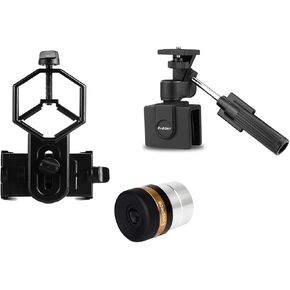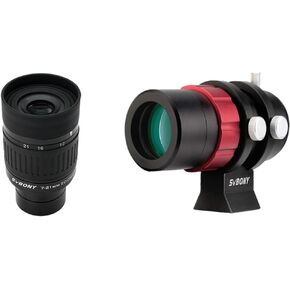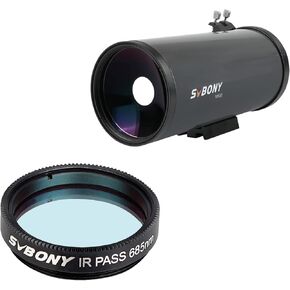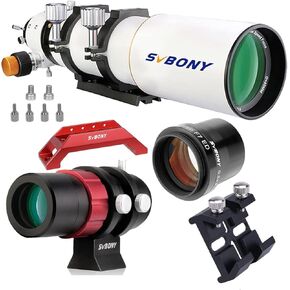- Shopping, made easy.
- /
- Get the app!
When you use the SV105 Astronomy Camera with a telescope, you need to adjust the telescope focus wheel while checking the image on your computer for clarity/sharpness.Note: The SV105 Astronomy Camera does not autofocus; you need to adjust the telescope focus to see a clear image.The SV105 camera works with many Windows, Linux, and Android systems.The SV105 Astronomy Camera works with telescopes with focal lengths ranging from 400mm to 800mm, so a refractor telescope with this focal length should see a clear image without any accessories.A tip for beginners: If you are photographing the moon, turn the gain and brightness down a bit, as the moon is closer and brighter. When photographing planets, increase the gain and brightness, as they are much fainter objects. The filter is suitable for those astronomers who are already imaging using color cameras and don't want to transition to a monochrome camera set. Be the efficient astronomer with SV220 Dual Band Filters!SV220 telescope filter is also a fantastic solution to dealing with light pollution that is becoming more and more prevalent. The filter has relatively wide bandpasses, especially at the OIII wavelength (500.7nm width).
 -21%
SVBONY SV126 Car Window Mount Adjustable Bundle with Telescope Lens and Cell Phone Adapter
KWD 15
-21%
SVBONY SV126 Car Window Mount Adjustable Bundle with Telescope Lens and Cell Phone Adapter
KWD 15
 SVBONY SV135 1.25" 7 to 21mm Zoom Eyepiece Bundle with SV165 Mini Guide Scope 30mm (2 Items)
KWD 33
SVBONY SV135 1.25" 7 to 21mm Zoom Eyepiece Bundle with SV165 Mini Guide Scope 30mm (2 Items)
KWD 33
 MK90 Telescope for Adults Astronomy 90mm Aperture 1250mm Focal Length Compact Catadioptric Telescope Bundle with SV183 1.25'' Telescope IR Pass Filter, for Moon, Saturn Planets Astrophotography
KWD 68
MK90 Telescope for Adults Astronomy 90mm Aperture 1250mm Focal Length Compact Catadioptric Telescope Bundle with SV183 1.25'' Telescope IR Pass Filter, for Moon, Saturn Planets Astrophotography
KWD 68
 SVBONY SV503 Telescope Tube Bundle with SV193 Focal Reducer, SV211 Dovetail Base, SV165 Mini Guide Scope, Universal Dovetail Base for Exceptional Viewing and Astrophotography
KWD 211
SVBONY SV503 Telescope Tube Bundle with SV193 Focal Reducer, SV211 Dovetail Base, SV165 Mini Guide Scope, Universal Dovetail Base for Exceptional Viewing and Astrophotography
KWD 211